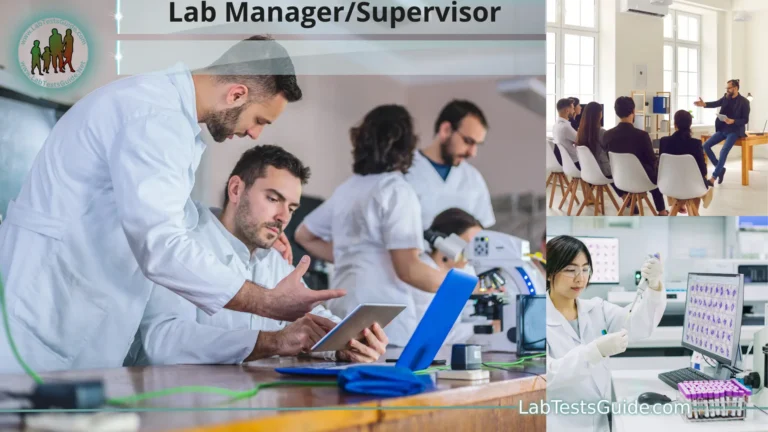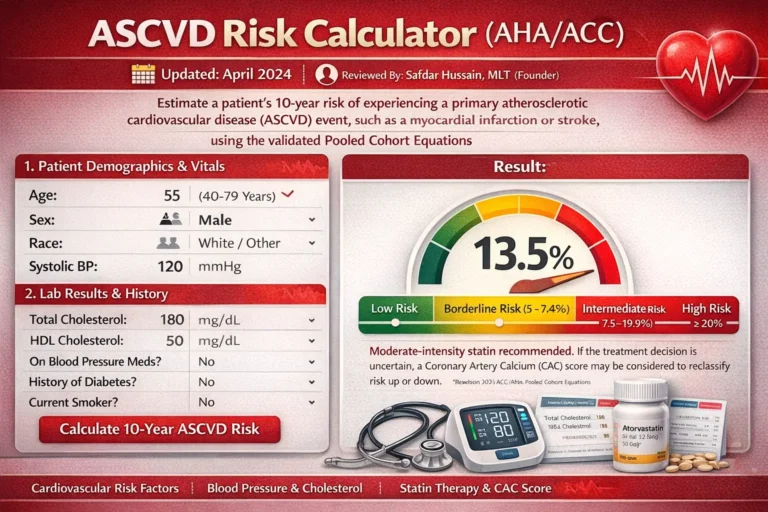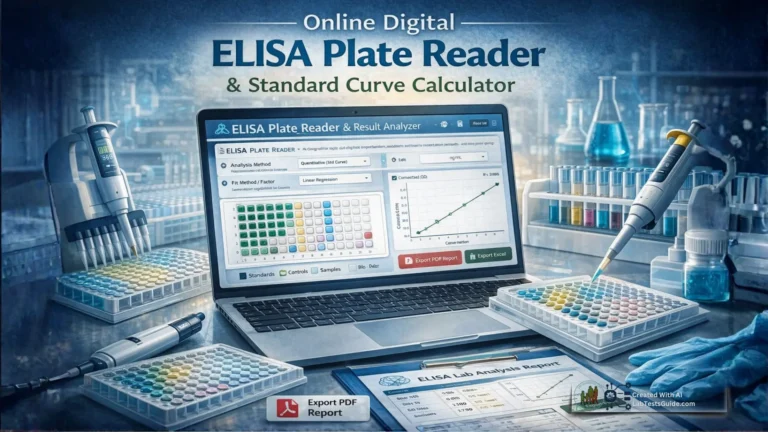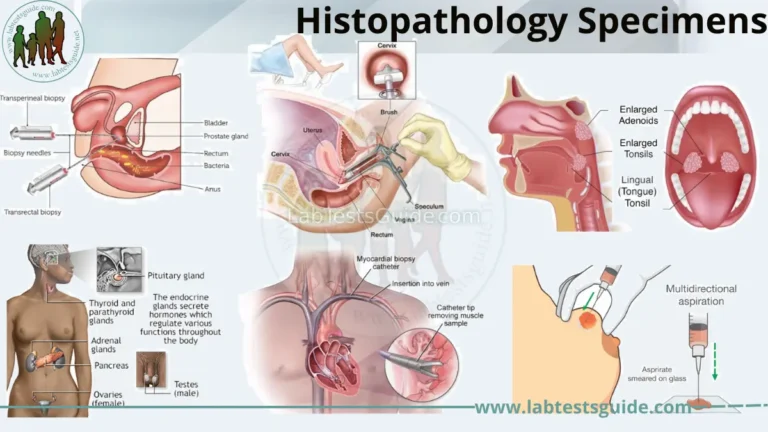A phlebotomist is a healthcare professional who is trained to draw blood from patients for various purposes, such as medical tests, blood donations, or research. The word “phlebotomy” comes from the Greek words “phlebo,” meaning vein, and “tomy,” meaning to make an incision or cut. Phlebotomists are responsible for safely and effectively collecting blood samples from patients, ensuring the samples are properly labeled, and sometimes assisting with the transportation of blood specimens to the laboratory for analysis.

Phlebotomists typically work in hospitals, clinics, blood banks, diagnostic laboratories, and other healthcare settings. They play a crucial role in the healthcare system by helping diagnose medical conditions, monitor treatment effectiveness, and ensure the safety of blood transfusions.
Career Prospects for Phlebotomist:
Career prospects for phlebotomists can be quite promising, especially as the healthcare industry continues to grow. Here are some key factors to consider regarding career prospects for phlebotomists:
- High Demand for Healthcare Workers: The healthcare industry is generally stable and tends to grow, creating a steady demand for phlebotomists. As the population ages and requires more medical care, the need for diagnostic tests that often require blood samples will also increase.
- Diverse Work Settings: Phlebotomists can work in various healthcare settings, including hospitals, clinics, physician’s offices, laboratories, blood banks, and diagnostic centers. This diversity offers opportunities for job flexibility and the ability to explore different work environments.
- Advancement Opportunities: While phlebotomy is typically an entry-level position, it can serve as a stepping stone for other healthcare careers. Many phlebotomists choose to further their education and become medical laboratory technicians, medical laboratory scientists, or even nurses.
- Specialization: Phlebotomists can specialize in specific areas, such as pediatric or geriatric phlebotomy, which may lead to unique job opportunities and career paths.
- Certification: Obtaining certification as a phlebotomist, such as through organizations like the National Phlebotomy Association or the American Society of Phlebotomy Technicians, can enhance career prospects and earning potential.
- Competitive Salaries: The salary of a phlebotomist can vary depending on location, experience, and certifications. However, many phlebotomists earn competitive wages with the potential for salary increases over time.
- Job Security: Healthcare professions, including phlebotomy, offer relatively high job security, as healthcare services are essential and continue to be in demand.
- Continuing Education: Staying updated with the latest phlebotomy techniques and technology can open up new opportunities and help phlebotomists remain competitive in the field.
- Remote and Travel Opportunities: Some phlebotomists work as traveling phlebotomists or may have the opportunity to work remotely, especially in the context of telehealth services and remote testing.
- Job Satisfaction: Many phlebotomists find their work rewarding as they play a crucial role in patient care by ensuring accurate blood samples for diagnosis and treatment.
Qualifications and Education:
To become a phlebotomist, you typically need to complete a specific educational program and obtain the necessary qualifications. Here are the typical qualifications and education requirements to pursue a career in phlebotomy:
- High School Diploma or Equivalent: Most phlebotomy programs require candidates to have a high school diploma or a GED (General Educational Development) certificate.
- Training Program: To gain the necessary skills and knowledge in phlebotomy, you should enroll in a phlebotomy training program. These programs are often offered by community colleges, vocational schools, or healthcare institutions. The duration of the training program can vary but is usually relatively short, ranging from a few weeks to a few months.
- Curriculum: Phlebotomy training programs cover various topics, including:
- Anatomy and physiology of the circulatory system.
- Blood collection techniques (venipuncture and capillary puncture).
- Infection control and safety procedures.
- Medical terminology.
- Patient communication and interpersonal skills.
- Legal and ethical issues in phlebotomy.
- Hands-on clinical experience.
- Certification: While not always required, obtaining certification as a phlebotomist can enhance your qualifications and job prospects. Several organizations offer phlebotomy certification, including the National Phlebotomy Association (NPA), the American Society of Phlebotomy Technicians (ASPT), and the National Center for Competency Testing (NCCT). Certification requirements may vary, but they often include passing a written exam and demonstrating practical skills.
- State Requirements: Be aware that some states have specific requirements or regulations for phlebotomists. It’s essential to check with your state’s health department or licensing board to understand any state-specific requirements, such as licensure or additional training.
- Continuing Education: Phlebotomists should stay current with the latest industry trends, techniques, and safety protocols. Some organizations require certified phlebotomists to complete continuing education to maintain their certification.
- Optional Advanced Education: While not mandatory, some individuals choose to pursue further education in healthcare, such as becoming a medical laboratory technician or a medical laboratory scientist. These roles typically require additional education and certification.
Skills and Qualities:
To excel in a career as a phlebotomist, you need a combination of technical skills, interpersonal qualities, and personal attributes. Here are the key skills and qualities required for success in this profession:
Technical Skills:
- Venipuncture: Proficiency in the art of venipuncture, which involves drawing blood from veins using needles, is essential. This includes selecting appropriate veins, using the correct techniques, and minimizing discomfort for the patient.
- Capillary Puncture: The ability to perform capillary punctures to collect blood samples from small blood vessels, typically in the fingers or heel, is important, especially when working with infants or young children.
- Knowledge of Equipment: Familiarity with the various types of phlebotomy equipment, including needles, syringes, and blood collection tubes, is crucial for safety and accuracy.
- Infection Control: Understanding and implementing proper infection control procedures to prevent the spread of diseases, including the use of personal protective equipment (PPE), is essential.
- Labeling and Documentation: Accurate labeling of blood samples, proper documentation, and maintaining records are critical for patient safety and healthcare compliance.
Interpersonal Qualities:
- Empathy: Demonstrating empathy and compassion for patients, especially those who may be anxious or in pain, is essential for building trust and ensuring a positive patient experience.
- Communication Skills: Effective communication is vital for explaining procedures to patients, addressing their concerns, and collaborating with healthcare teams.
- Professionalism: Maintaining a professional demeanor, including punctuality, confidentiality, and a neat appearance, is crucial in healthcare settings.
Personal Attributes:
- Attention to Detail: Phlebotomists must pay meticulous attention to detail to ensure the accuracy of blood samples and patient information.
- Steady Hand and Hand-Eye Coordination: The ability to perform precise and controlled movements while working with needles and blood collection equipment is essential.
- Calm Under Pressure: Phlebotomists may encounter difficult situations, such as uncooperative patients or emergencies. Being able to remain calm and composed is critical.
- Adaptability: Healthcare settings can be fast-paced and subject to changes. The ability to adapt to different situations and handle unexpected challenges is valuable.
- Ethical Integrity: Upholding ethical standards and patient confidentiality is paramount in the healthcare profession.
- Physical Stamina: Phlebotomists may spend a significant portion of their day on their feet and need physical stamina to perform the job effectively.
- Problem-Solving Skills: The ability to troubleshoot issues related to blood collection, equipment, or patient comfort is important.
- Team Player: Collaboration with nurses, doctors, and other healthcare professionals is common, so being a team player is essential for providing comprehensive patient care.
Job Description / Responsibilities:
Patient Interaction and Preparation:
- Greet and reassure patients, explaining the blood collection process.
- Verify patient identities and confirm the requisition forms for accurate sample collection.
- Assess patient’s physical condition and suitability for blood draw.
- Answer patient questions and address concerns regarding the procedure.
- Ensure patients are adequately prepared, which may include fasting or specific dietary instructions.
Blood Collection:
- Select appropriate veins for venipuncture or capillary puncture, considering patient age and condition.
- Perform venipuncture or capillary puncture following proper aseptic techniques.
- Safely and efficiently collect blood samples into the appropriate collection tubes.
- Monitor the patient for any adverse reactions during or after the blood draw.
- Label blood samples accurately, including patient information and specimen type.
Safety and Infection Control:
- Follow strict infection control procedures, including hand hygiene and the use of personal protective equipment (PPE).
- Properly dispose of used needles and biohazard materials.
- Maintain a clean and sterile work environment.
Equipment Maintenance:
- Perform routine maintenance and quality control checks on phlebotomy equipment.
- Report any equipment malfunctions or issues to supervisors.
Documentation and Record-Keeping:
- Complete all required documentation accurately and in a timely manner.
- Maintain detailed records of blood collection procedures and patient information.
- Ensure all specimens are correctly labeled and match the requisition forms.
Communication and Collaboration:
- Communicate effectively with healthcare providers, nurses, and laboratory staff regarding patient information and sample collection.
- Collaborate with healthcare teams to ensure coordinated patient care.
Patient Comfort:
- Provide emotional support to anxious or nervous patients during the procedure.
- Minimize patient discomfort and pain during blood collection.
Quality Assurance:
- Ensure the integrity and accuracy of blood samples for diagnostic purposes.
- Follow established quality assurance and quality control procedures.
Emergency Response:
- Respond appropriately to any adverse reactions or complications during blood collection.
- Administer first aid as needed in emergency situations.
Education and Training:
- Stay up-to-date with the latest phlebotomy techniques, safety protocols, and industry developments.
- Assist in training and supervising new phlebotomists or healthcare personnel.
Ethical and Legal Compliance:
- Adhere to ethical standards, patient confidentiality, and all applicable laws and regulations in healthcare.
Inventory Management:
- Monitor and manage inventory levels of phlebotomy supplies, including needles, collection tubes, and PPE, to ensure availability when needed.






